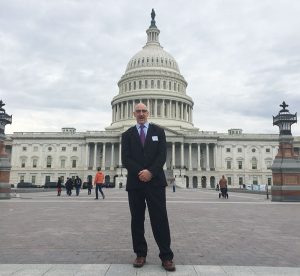Q&A with The Founder
Q&A With The Founder Of The Third Talk™
Who are you?
I am an advocate of healthy, happy people. I am a partner in the Buncombe County Prevention Task Force. I am also a stakeholder on the North Carolina Human Trafficking Commission. I have worked as a program trainer for the North Carolina Department of Public Instruction and the North Carolina Center for Safer Schools. I have coached families and young people on how to avoid sexually explicit material online for over 10 years. I am the founder of The Third Talk Inc. I have a degree in Psychology from Syracuse University. Most importantly, over time, I have become fearless about addressing this topic and its harm to our young people.
How are you affecting change?

My team and I are changing the porn culture by talking with parents of young people (7–17-year-olds) and providing them with the language to initiate a pornography prevention conversation in their homes. Explicit adult content can be a scary topic for parents to think about, much less discuss with their young people. However, parents need to put their fears aside and address sexually explicit media online openly and immediately, because this content is available to young people on every device and social media platform they use. On average, they start to notice and view this content at about age 11.
What are your expected results?
We want to reduce significantly the number of sexually explicit adult videos viewed by our young people. My team and I want to help change our young people’s culture from the existing porn culture to respect, communication, and care. Even a slight reduction in exposure (10%) would translate into hundreds of millions of videos not being viewed by underage people. This will increase the health and happiness of our nation’s youth.
Why are you doing this?
We are making this commitment to children for their health and happiness. Sexually explicit material does not make a child healthier and certainly not happier. When your daughter’s sexual relationships begin from a place of mutual respect and communication, we’ll know we have turned the tide. When your son can explore his sexuality without feeling the need to perform in a way that is uncomfortable for him or do things he thinks that he shouldn’t just to fit in, we will be on our way. It starts with our young people and our parents wanting to address this topic without shame or blame. It requires the willingness of parents to meet our nation’s young people in the world they live in, not in the world we wished they lived. I am doing this because we HAVE to!
Is this a specific ideology, or religion?
The Third Talk Inc. is information for parents and young people about growing up in a pornography-soaked internet environment and how to manage that using conversations at home – and nothing else. No ideological beliefs are incorporated, and this is not “sex-ed.” Instead, we are an education-based platform focused solely on preventing the exposure of sexually explicit media to our young kids. We simply provide parents, grandparents, guardians and caregivers, the communication necessary to achieve that goal.
What hurt?
Explicit adult material in the brain of a boy can alter his interest in real people. It can enhance or create feelings of aggression, depression, fear, shame, and loneliness. It can set neural pathways in his brain that might take years of expensive therapy to remedy. Sexually explicit media can create a phenomenon in young boys and young men called P.I.E.D., or pornography induced erectile dysfunction. It is exactly what it sounds like. This can change a young man’s interest in sexuality, destroy his confidence, and cause him to become angry, aggressive and scared. Likewise, this content for girls can misleadingly act as a guide or strategy to show them what their potential partners “want.” If girls and young women operate on that premise, it could alter their ability to successfully interact with a partner now and later in their lives. This content for girls can accelerate what could and should be a gradual exploration process of their own sexuality and can enhance images of young women as sexual objects.
Recently we have seen the number of Cyber Tips (sexually based crimes against children online) from The National Center for Missing and Exploited Children (NCMEC) double from 2019 to 2020. The numbers continue to increase in 2021. Meaning that sexually explicit content can increase the likelihood that your young person could be physically harmed by an online predator by watching this content. We, as adults, must do more to prepare our children from this inevitable exposure for their health safety and happiness. If you think about it, we’re the only ones who can.
All parents!
Please know it’s not just your children. Your kids will interact with dozens of other young people who may already watch sexually explicit material. Therefore, we must reach all parents and kids (schools, sports teams, churches) to change porn culture for our youth effectively. We can no longer hope or expect that our kids will not see explicit adult material, properly manage that exposure, or remain unaffected by viewing it. This content hurts their brains, harms them emotionally, physically, creates significant hurdles to human bonding now, and alters their ability to form genuine connections with others into adolescence and beyond.
We have tried for 20 years to remove it, restrict it, legislate against it and filter it. We’ve even tried shaking our fists at the problem hoping someone else would solve it. It is time to act. You must act. The Third Talk™ is how I have decided to act.
